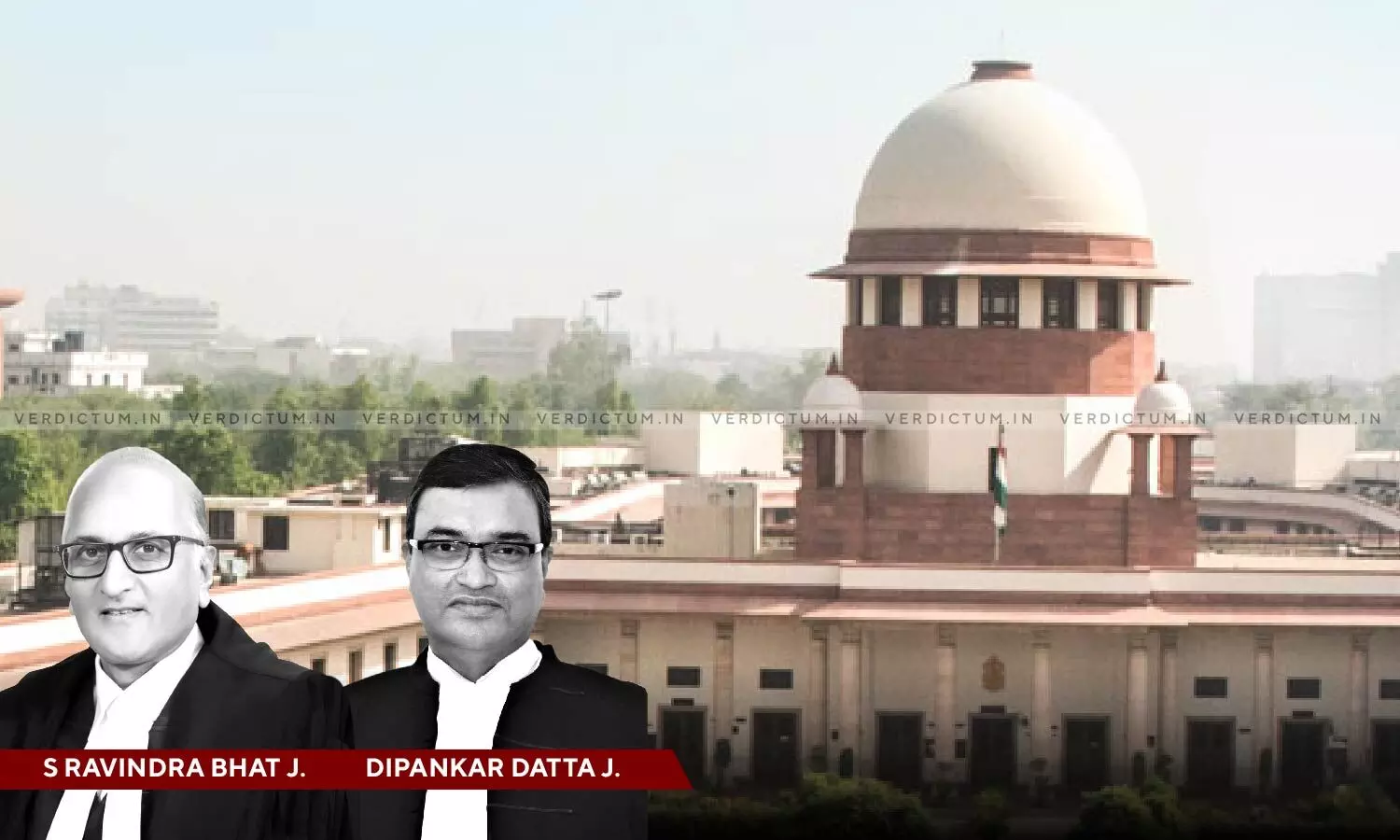
"Parties Are Bound By Principle Of Finality, Which Results In A Decree By A Competent Court"- Reiterates SC
 |
|The Supreme Court has reiterated that parties are bound by the principle of finality, which results in a decree by a competent court, acquiring a final and binding nature, especially where it was confirmed concurrently and upheld by the highest court of the land.
The Court directed the National Green Tribunal (NGT) to hear the parties, after the report of inspection by the committee was submitted and then pass the final order.
The Bench of Justice S. Ravindra Bhat and Justice Dipankar Datta observed that “The judgments of the courts in its (society’s) favour, clearly reveal that the 1.4 hectares owned by it, for which conversion (from agricultural to non-agricultural use) was sanctioned, was sought to be cancelled, on the ground that the land, fell within the submergence area. The history of the previous litigation – which the NGT was seized with – reveals that the land forming part of Khasra No. 1248, owned by the society, was directly in issue in a litigation to which the state was a party, and in which it lost. That decree was affirmed by all the courts. When the NGT was made aware of this fact, it chose to ignore it. Without a review, or any known process by which a decree concerning the same facts could be re-opened, the NGT could not have rejected the society’s contentions. The society’s appeal, therefore, requires to succeed.”
Senior Advocates Meenakshi Arora, A.N.S Nadkarni, and P.C. Sen appeared for the appellant and Additional Advocate General P.V Yogeshwaran appeared for the respondent.
In this case, a batch of appeals was preferred against the order of the National Green Tribunal by which the Nagar Palika Parishad, Mansaur (Parishad) was directed to desist from granting sanction to develop and construct properties in the vicinity of the “Teliya Talab” (Talab).
The original applicant-respondent had filed an application before the Central Bench of the National Green Tribunal (NGT), and directions were sought for protection and conservation of the talab, on the ground that allowed construction upon a water body, would result in depletion of the lake’s area, thus reducing availability of surface water. Thereafter, review petitions were preferred, which were also rejected by the NGT.
The Apex Court noted that the NGT being a judicial tribunal was exclusively tasked with the duty of deciding environmental disputes and causes. The NGT was also bound by the principles of natural justice therefore, it had to take into consideration that the nature of its directions meant that all those living or owning land near the talab, who had obtained sanctions from the Parishad and the Town and Country Planning Department (TCD), were condemned unheard.
Further, it noted that when some of the appellants approached the NGT in review proceedings, those petitions were rejected summarily and said that such orders could not be sustained as they did not disclose any application of mind to the existence of the Development Plan, which was only a draft, or proposal to increase the area of the talab, and had further permitted the development of the disputed areas.
Therefore, on perusal of the record, the Apex Court said that the society’s rights, title, and interest in respect of the land purchased by it, for which construction permission was granted, should not be disturbed or affected, in any manner.
Accordingly, the appeals were allowed.
Cause Title- Shramjeevi Cooperative Housing Society Ltd. v. Dinesh Joshi & Ors